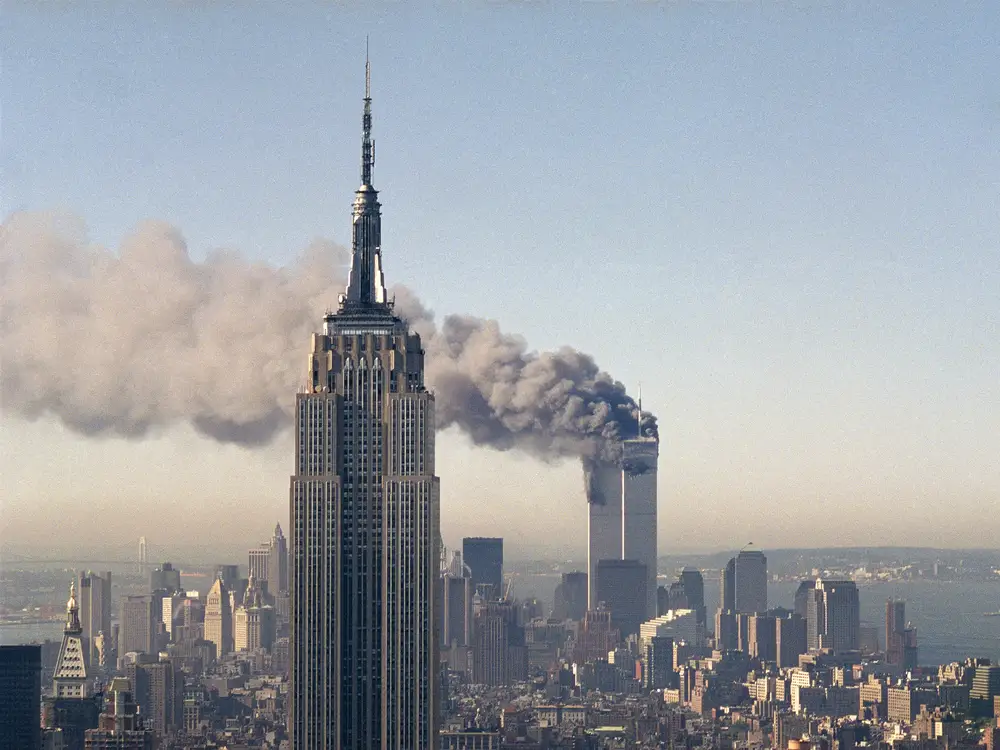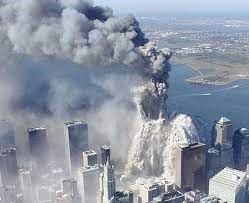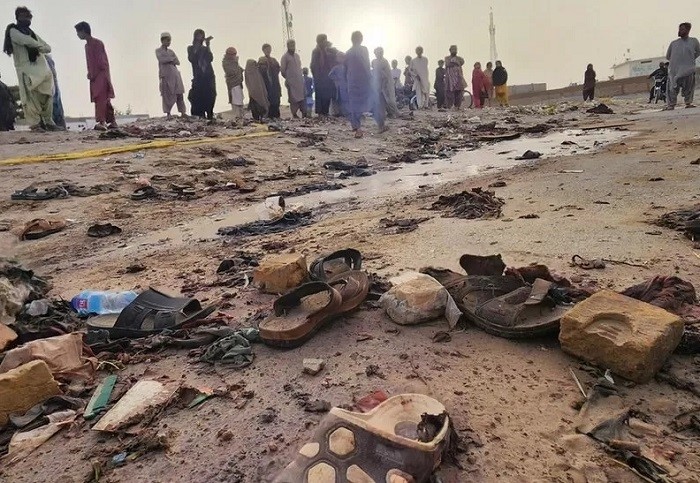- [email protected]
- Mon - Sat 8:00 - 18:00. Sunday CLOSE

The events of September 11, 2001, mark a footnote in history that will always go down as the inception of the complete disintegration of the concept of sovereignty, the adherence to the Geneva Convention, and the decline of the American leadership status in the world. Although, it is rightfully marked as a day of mourning in the United States - having been the cause of many innocent lives lost. It also started a chain reaction of multiple 9/11’s, only this time the effects reverberated throughout the rest of the world as we know it. None faced them more than Iraq, Afghanistan, and Pakistan.
Figure 1

World Trade Center - September 11, 2001
After the attacks had annihilated the American sense of security, that their domestic land could be penetrated by terrorists, the Bush administration campaigned heavily to declare war on all terrorist outfits around the globe, especially Al-Qaida. A coalition of approximately twelve countries was announced, including prominent NATO members to battle terrorism, termed the Global War on Terror (GWoT). Pakistan was declared a frontline ally in the war, due to its proximity to Afghanistan and the fact that it could act as a base for any activity in the country as proven in the Cold War era. One cannot term Pakistan's involvement in the war as an act of solidarity in battling such forces or to crush Al-Qaida for their own benefit. Rather Pakistan's decision to involve itself in the war can be termed as ‘coercion.’ Proven by the fact that then US Secretary of Defense, Colin Powell had told President Musharraf, “You are either with us or against us.” Along with the US Secretary of State Richard Armitage telling the DG ISI (Inter Service Intelligence), “We will bomb you back to the stone age.” With such an attitude by the leading military power at the time, one can hardly say Pakistan joined the war on its own accord. Let me begin by mentioning the domestic implications of joining the war in steps:
The ‘Us and Them’ Concept
Despite being in the twenty-first century, Pakistan had yet to develop a foundation for the basis of its governance properly. Being embroiled in the confusion of declaring itself a post-colonial democratic state or a theo-democracy, Pakistan was hunkered down by the introduction of a new concept that further sowed confusion in the rationale for creating domestic policies/social contracts and creating a foreign policy towards a certain region, especially the middle east. The United States during this time embedded within the Pakistani leadership thought that, while Pakistan enjoys relations with other Islamic countries (i.e. OIC), it will need to shift its priorities more towards Western values in order to create a distinction between ‘us and them.’ Pakistan is the only Islamic country that is the highest recipient of US foreign aid. To this day, the distinctions drawn up due to this thought result in an identity crisis for our people when asked whether they would shift their priorities to the Middle East - Central Asian region or further west.
Devastation of the Tribal Areas
The FATA and KP region were used as the base to operate from and into, in the war on terror. Since the frontier areas bordering Afghanistan housed people of the same lineage at the time on both sides of the border, the Taliban were able to conduct terror activities on a large scale within the province as well. Heavily devastated divisions such as Malakand and Buner are still trying to recover from the aftermath. An account of a local from Buner mentions that the Taliban came to them seeking shelter and safe haven, they played on the emotions of the people into helping them ‘fight this holy war.’ Upon receiving shelter and food they turned on the locals and started murdering them indiscriminately and even took over a radio station. Pakistan suffered a loss of $150 Billion and 80,000 lives, combatant and noncombatant. More than 1.2 million were displaced According to an Arab newspaper, the total number of lives lost in this war in the tribal areas of both Afghanistan and Pakistan is 423,000.
The number increased from 2009 at a very rapid pace due to terrorist activities in-country such as the attack on the Sri Lankan cricket team, attack at GHQ(General Headquarters), etc. Perhaps the biggest factor that affects Pakistan’s educational demographics even today, is the result of conservatism of female education after the war. The Taliban, acting on radicalized Islamic teachings, bombed and battered schools in KP providing education to women. According to the KP education ministry, 458 women’s schools were targeted from 2008-2011 in the province. This has resulted in a majority of women being unable to have access to education due to the thinking of the people of the frontier province being maligned towards female education. A terrible effect on the nation as a whole. (Pakistan Journal of Counter Terrorism)
Figure 2

Foreign Attitude Towards Pakistan (India & United States):
(1) India: India and Pakistan have always seen each other through a constricted lens of animosity. This is mostly due to the militaristic nature of their engagements with one another, even in diplomacy. India already has always tried to portray Pakistan as the aggressor in the Kashmir issue, stating that it is due to repeated intervention by Pakistan that Kashmir does not see peace. The post-9/11 era had given them an olive branch in regards to putting more pressure on Pakistan. Events such as the October 1st car bomb blast outside the Indian senate and the December 13th firing attack in front of the Indian parliament were used by the Indian government to portray themselves as the victims of alleged 'Pakistani state-sponsored terrorism.' Since then India has used every international forum to implicate Pakistan as a terrorist state. (Gul, Nabiha. “Post-9/11 Pakistan-India Relations.” Pakistan Horizon 57, no. 3 (2004): 67–77. http://www.jstor.org/stable/41394058).
(2) United States: Most of the West, particularly the United States started building a narrative around Pakistan as a hub of terrorist activities. This could be due to one of the two facts; the Bush administration started to see more interest in India or the Americans created this narrative in order to push Pakistan into further action for hunkering down the Taliban in place with brevity. There were rumors looming in Washington that Pakistan is not doing as much as is required. However, it was also during this time that America's hypocritical behavior with regard to Pakistan was brought to light. When pursuing nuclear energy to respond to a very credible security threat by its neighbor, Pakistan was subjected to US sanctions. But when it was relevant to America, the Pressler Amendment was introduced. Cementing the fact that Pakistan would always remain a country that the United States would treat as a ‘border-patrol state’ in the region when the occasion arises.
(3) Current Situation: After 20 years in Afghanistan the United States has withdrawn, leaving its original objective unfulfilled and leaving Afghanistan in the hands of the same group it went to war against. With its departure, it leaves behind a sense of identity crisis for the millions displaced in Pakistan, who were living with the hopes of one day returning to their homes. Due to this, they did not make an effort to integrate themselves fully into the societies of the places they were staying in. It has also left behind a security hazard in the form of sleeper agents in the country operating with terrorist outfits. Nowhere is considered risk-free in Pakistan anymore and the people are still trying to come to terms with the choice of going into this global war on terror due to an incident on foreign soil.
References Gul, N. (2004). Post-9/11 Pakistan-India Relations. Pakistan Horizon, 57(3), 67–77. http://www.jstor.org/stable/41394058